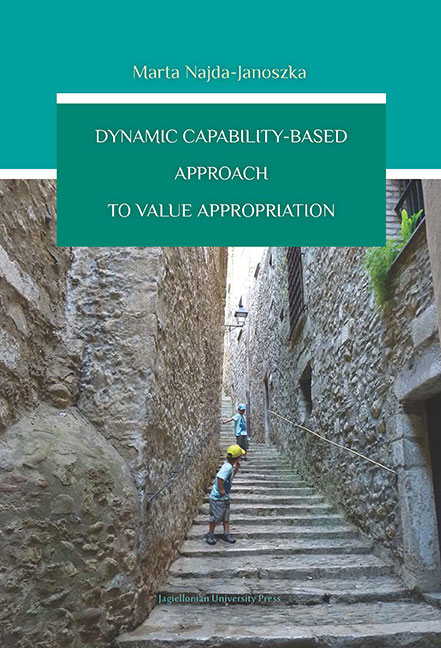Book contents
3 - Dynamic capabilities perspective
Published online by Cambridge University Press: 20 December 2017
Summary
The dynamics of the environment, observed and experienced through a more and more intensive globalization, integration and interdependence of markets, forces firms toward incorporation of that dynamics into their strategic management in order to grow, and most importantly to survive (D'Aveni, 1994; Banaszczyk & Cyfert, 2007). A strategic attempt to effectively exploit changes in the environment needs to be supported by inevitable modifications in deployed patterns of action. Thus, a thorough understanding of development of competitive advantages in such unstable conditions requires an approach that directly addresses the problem of change. An emerging concept of dynamic capabilities represents a relatively new and promising approach to explore strategic renewal (Cyfert, 2012), since it is characterized by an inherent focus on change. The field has been generating a significant and systematic growth of scholarly attention. Outcomes of that research effort confirm a substantial move forward on a developmental path of dynamic capabilities from a vague and obscure concept toward a cohesive paradigm. However, despite that remarkable flow of research, the framework still retains some unsolved issues and inconsistencies regarding its core elements. Thus, this Chapter aiming at providing a comprehensive view of the state of art is organized as follows. Firstly, the discussion concerns a theoretical grounding of the dynamic capabilities perspective in order to capture the complexity of the framework by recognizing multisource flows of theoretical contributions. Further, this broad base of theoretical foundations of the dynamic capabilities perspective is used as a point of departure for analyzing terminological issues. Clarification on key concepts and terms used in the dynamic capabilities perspective is followed by a thorough operationalization of the construct. Based on a review of seminal approaches presented in the literature a cohesive interpretation is attributed to relations between the overall construct and its components, and among the components as well. Finally, the Chapter presents an overview of the extant empirical studies on dynamic capabilities in order to characterize main directions of exploration in the field and to identify underdeveloped areas.
DEFINING DYNAMIC CAPABILITIES
It is quite challenging to define a newly introduced concept such as the dynamic capabilities perspective in a way that is at once precise and comprehensive. For one part, the perspective is still at a relatively early stage of development, for the other part its development is driven by contributions from diverse fields.
- Type
- Chapter
- Information
- Dynamic Capability-Based Approach to Value Appropriation , pp. 71 - 110Publisher: Jagiellonian University PressPrint publication year: 2016



